The homeland security threat landscape is constantly changing, requiring new and innovative approaches to incident response. The Maryland-National Capital Region Emergency Response System (MDERS) stakeholder community aims to regularly reassess their response priorities to adapt to emerging threats facing the community. To support this effort, MDERS provides training, technology funding, and planning support to build and enhance capabilities that ensure a coordinated response to emergency incidents. Threats, including cyber-attacks, active assailants, extreme weather, and mass decontamination remain as significant dangers to stakeholders. Daily reports of data breaches, or ransomware attacks taking place worldwide, show the volume of attacks are on the rise while hackers are adapting to circumvent new security measures. These attacks have proven to be economically crippling, time-consuming, and expensive to resolve.
On May 7, 2019, Baltimore City was attacked by a ransomware strike when city workers’ screens suddenly locked, and a message demanding cryptocurrency appeared on their screen. City files were encrypted and could only be accessed and opened with an access key provided by the attackers following the ransom payment. As a result, local public safety organizations began working with their Information Technology (IT) Departments to limit security vulnerabilities and prepare recovery plans. Baltimore City redirected 18 million dollars in city funds to harden its IT protocols following the attack. Even with constant updates and 24-hour surveillance, hackers are becoming more sophisticated and can infiltrate systems at almost any agency.
With the help of the MDERS, stakeholders had the opportunity to participate in a virtual cybersecurity workshop facilitated by three subject matter experts from the University of Maryland Center for 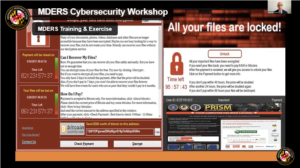 Health and Homeland Security (CHHS) and Montgomery County Office of Emergency Management and Homeland Security (OEMHS). This workshop allowed stakeholders to learn effective organizational preparedness and response capabilities, which could be applied to their agencies. In addition, MDERS continues to offer training opportunities providing its stakeholders with cutting-edge techniques to help protect their agency.
Health and Homeland Security (CHHS) and Montgomery County Office of Emergency Management and Homeland Security (OEMHS). This workshop allowed stakeholders to learn effective organizational preparedness and response capabilities, which could be applied to their agencies. In addition, MDERS continues to offer training opportunities providing its stakeholders with cutting-edge techniques to help protect their agency.
As mass shooting events around the United States are occurring more regularly, active shooter training has become a higher priority for public safety agencies. MDERS has continued to facilitate tabletop exercises, full-scale exercises, and training for all stakeholder disciplines to ensure members of the Maryland-NCR community are prepared for such an event. Within the past year,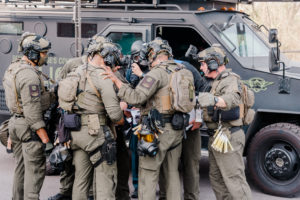 MDERS has facilitated tabletop exercises and a full-scale active assailant exercise at Prince George’s County Police Department (PGPD) Training Facility and Firing Range. Additionally, MDERS worked with Prince George’s County Police Department and Montgomery County Police Department (MCPD) Special Operations Division’s (SOD) leadership to create a tabletop series to ensure a cohesive response in an interdisciplinary multi-jurisdictional incident.
MDERS has facilitated tabletop exercises and a full-scale active assailant exercise at Prince George’s County Police Department (PGPD) Training Facility and Firing Range. Additionally, MDERS worked with Prince George’s County Police Department and Montgomery County Police Department (MCPD) Special Operations Division’s (SOD) leadership to create a tabletop series to ensure a cohesive response in an interdisciplinary multi-jurisdictional incident.
Over the past decade, weather challenges in the Maryland-NCR have become more unpredictable due to increasing in intensity. However, public safety agencies have learned to adapt and become resilient to climate change. More importantly, MDERS ensures to provide climate resiliency training opportunities and fund traveling expenses to allow stakeholders to attend climate emergency preparedness conferences. Participants learned about best practices from a variety of organizations and disciplines throughout the United States. In preparation for the winter weather, regional agencies have also conducted extensive tabletop exercises to ensure no gaps in their plans or capabilities.
Mass decontamination, the removal of dangerous substances or radioactivity by scrubbing a patient with soap and water, is becoming one of the essential facets of hospital, law enforcement, and fire/rescue/EMS preparedness and response. The training and equipment used for decontamination are highly adaptable, which allows public safety agencies and healthcare facilities to adjust their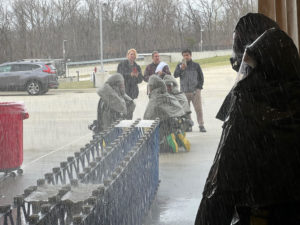 use for specific response operations. Decontamination shelters can be rapidly deployed in any location and easily stored away. Stakeholders may use decontamination shelters to establish incident command posts, support field triage, and other public safety response operations.
use for specific response operations. Decontamination shelters can be rapidly deployed in any location and easily stored away. Stakeholders may use decontamination shelters to establish incident command posts, support field triage, and other public safety response operations.
MDERS is regularly advised of new training and equipment requested by its five stakeholder disciplines: law enforcement, fire, rescue, EMS, emergency management, public health, and the hospital systems in Montgomery and Prince George’s Counties. Together these disciplines, and MDERS, collaborate to provide the Maryland-NCR with innovative training and exercise initiatives to combat the ever-changing threats facing the Homeland Security Enterprise.





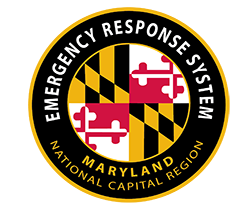
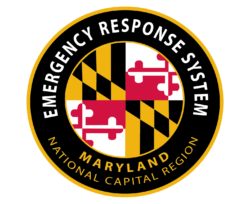



 Health and Homeland Security (CHHS) and Montgomery County Office of Emergency Management and Homeland Security (OEMHS). This workshop allowed stakeholders to learn effective organizational preparedness and response capabilities, which could be applied to their agencies. In addition, MDERS continues to offer training opportunities providing its stakeholders with cutting-edge techniques to help protect their agency.
Health and Homeland Security (CHHS) and Montgomery County Office of Emergency Management and Homeland Security (OEMHS). This workshop allowed stakeholders to learn effective organizational preparedness and response capabilities, which could be applied to their agencies. In addition, MDERS continues to offer training opportunities providing its stakeholders with cutting-edge techniques to help protect their agency. MDERS has facilitated tabletop exercises and a full-scale active assailant exercise at Prince George’s County Police Department (PGPD) Training Facility and Firing Range. Additionally, MDERS worked with Prince George’s County Police Department and Montgomery County Police Department (MCPD) Special Operations Division’s (SOD) leadership to create a tabletop series to ensure a cohesive response in an interdisciplinary multi-jurisdictional incident.
MDERS has facilitated tabletop exercises and a full-scale active assailant exercise at Prince George’s County Police Department (PGPD) Training Facility and Firing Range. Additionally, MDERS worked with Prince George’s County Police Department and Montgomery County Police Department (MCPD) Special Operations Division’s (SOD) leadership to create a tabletop series to ensure a cohesive response in an interdisciplinary multi-jurisdictional incident. use for specific response operations. Decontamination shelters can be rapidly deployed in any location and easily stored away. Stakeholders may use decontamination shelters to establish incident command posts, support field triage, and other public safety response operations.
use for specific response operations. Decontamination shelters can be rapidly deployed in any location and easily stored away. Stakeholders may use decontamination shelters to establish incident command posts, support field triage, and other public safety response operations.